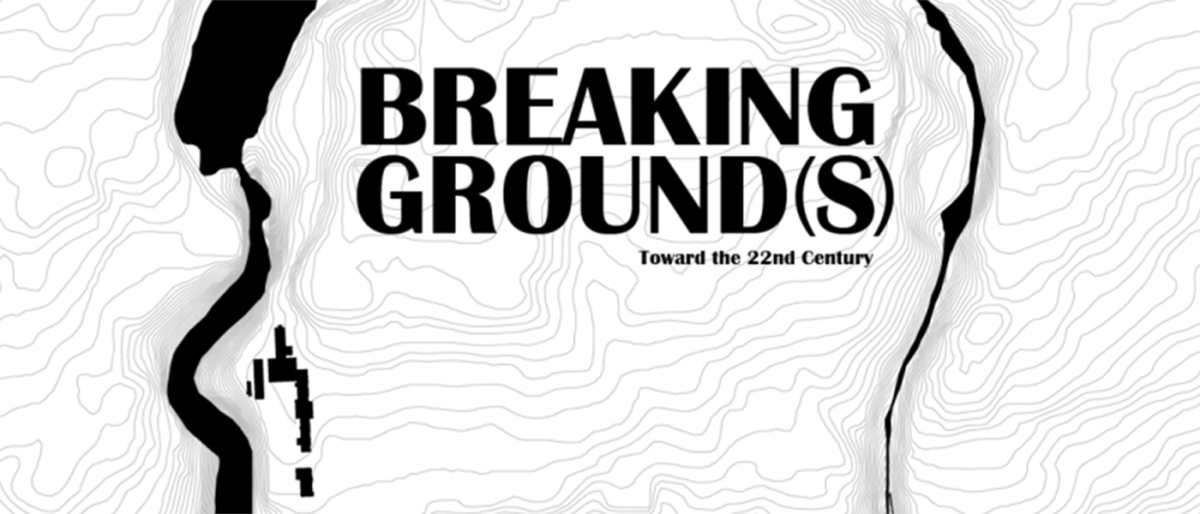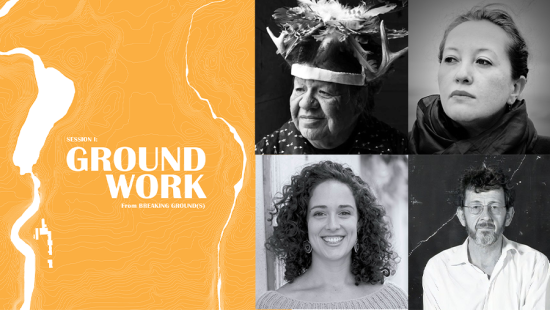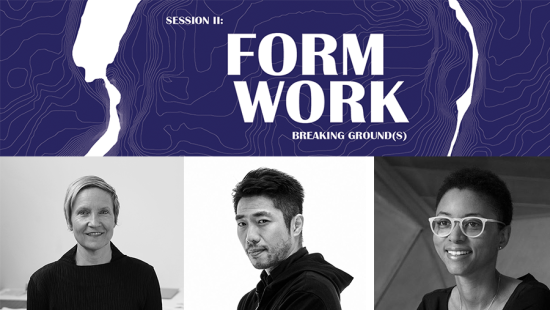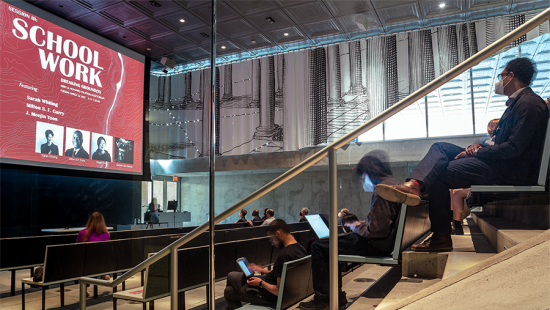Architecture Breaks Ground at 150 Years
On the occasion of the Department of Architecture's sesquicentennial, a transdisciplinary slate of leading scholars and designers — from indigenous geographers and storytellers, to architecture and landscape historians and critics, and leaders of contemporary architecture practice and pedagogy — will join Breaking Ground(s), a series of conversations that intersect at the notion of ground. Or, grounds.

Spring 2022 Preston Thomas Memorial Symposium: Breaking Ground(s), Toward the 22nd Century
The Department of Architecture at Cornell was first established in 1871 by university co-founder, A.D. White within the purview of the institution's founding mission to provide a place where "any person can find instruction in any study." Marking the occasion of the department's 150-year anniversary this academic year, architecture chair and associate professor Caroline O'Donnell invites leading scholars and practitioners to AAP for a series of discussions that fall under the theme: Breaking Ground(s), Toward the 22nd Century. Three sessions: "Groundwork," "Formwork," and "Schoolwork," foregrounded by a keynote lecture by Timothy Ingold, are meant to prompt timely questions and an array of perspectives on "the fundamental interconnectedness of the discipline with global ecologies and culture, alongside the consideration of future trajectories for the practice and pedagogy of architecture."
On the imperative to reflect and expound on the history and future of the department and discipline at this significant milestone, O'Donnell shares, "While the anniversary and traditions of the department call for celebration, we are also provided — as a department and a community of people with interrelated interests and backgrounds — with an opportunity to ask and answer important questions. The discipline of architecture is at a pivotal moment with regard to our critical engagement with our histories and foundations, the evolution of design practice and its concerns, and approaches to pedagogy that guide emerging generations of architects. Our community is ready to disrupt and advance our thinking about possible worlds that are more sustainable, equitable, smart, and meaningful in the future."
Co-organizer and architecture teaching associate Wendolin Gonzalez, elaborates, "Breaking Ground(s) is about building something new, but the title also refers quite literally to the ground beneath everything we've already built. Engaging deeply and looking forward, these conversations will help us rethink our design and building practices in relation to notions of interconnectedness found in kinship from indigenous culture and from contemporary ecological theory."
Who, What, When
Keynote lecture: Timothy Ingold, Tuesday, March 8
The symposium will be opened with a keynote lecture by Timothy Ingold a social anthropologist and professor emeritus at the University of Aberdeen who works at the intersection of architecture, culture, and the natural environment. Author of books such as Making: Anthropology, Archaeology, Art and Architecture, and Being Alive: Essays on Knowledge, Movement and Description, Ingold's overview will consider the future of the architecture discipline in three parts that align with the symposium's three topics: the ground, practice, and education, all in relation to notions of kinship.
Session I: Groundwork
The first of three sessions will take place Thursday, March 10, and will situate architecture deep within the context of land and the natural environment. Sachem Sam George put through Words Before All Else to open the event.
Moderated by Jolene Rickard, associate professor, Department of Art and Department of History of Art and Visual Studies, and Sean Anderson, associate professor of architecture and director of the B.Arch. program, visiting discussants include:
- Amber Adams, Editor, Native American Community Services
- Meredith Palmer, Cornell Presidential Postdoctoral Fellow, Science and Technology Studies
- Sébastien Marot, Professor of Environmental History, École d’Architecture de la Ville et des Territoires in Paris-Est
The second session of the symposium will take place on Thursday, March 17, centering around connections between architecture practice and pedagogy at AAP, and speculating on the future of design and built environments.
Moderated by architecture lecturer Marta H. Wisniewska and Lily Chi, associate professor of architecture, Director of Graduate Studies, and MSAAD director, visiting discussants include:
- Nina Cooke John (B.Arch.'95), adjunct assistant professor, Columbia GSAPP; founding principal of Studio Cooke John
- Arthur Huang (B.Arch. '02), co-founder and CEO of MINIWIZ
- Lori Brown, professor of architecture, director of diversity, equity, and inclusion, Syracuse University; co-Founder of ArchiteXX
The series will conclude with a conversation between Dean of USC Architecture Milton Curry, Harvard GSD Dean Sarah M. Whiting, and AAP Dean J. Meejin Yoon. The three deans will reflect on current approaches to architecture and design education today and discuss how we might "reimagine pedagogy for an evolving world." The session will take place Tuesday, March 22, and will be moderated by assistant professor María González Pendás, HAUD, and Jenny Sabin, associate professor of architecture, AAP associate dean for design initiatives; and Matter, Design, Computation program director.
All events are free and can be attended virtually with registration. In-person sessions will take place as permitted in the Abby and Howard Milstein Auditorium in Milstein Hall. Please visit AAP's spring 2022 Preston Thomas Memorial Symposium event page for up-to-date information. More information on the Department of Architecture's anniversary events to come.
To view the full programming of our anniversaries click here.
Stay connected! Follow @cornellaap on instagram, facebook, twitter, and linkedIn; and subscribe to our AAP bi-weekly newsletter.






